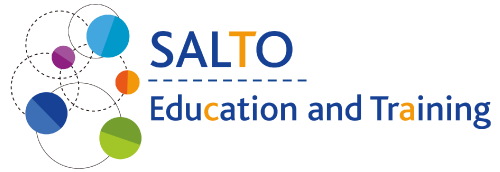LTA Impact, Monitoring & Evaluation - Training Monitoring

Main Info
TCA Description
The training will be a combination of plenary session and sessions in sub- groups. During the sessions in sub-groups, we will be working on exercises. The TCA is aimed at NA staff and at beneficiaries/applicants wishing to learn more about how to develop a monitoring plan for KA220 Cooperation Partnerships.
After this training, participants:
• have reflected on what how monitoring could work within in the context of their key action;
• have analysed monitoring requirements for Cooperation Partnerships, including those in the new proposed delegated act;
• can develop a monitoring plan based on the information needs of different stakeholders;
• have practiced analysing the relevant indicators, including those of the horizontal priorities.
This TCA is open to NA staff working on KA220 monitoring, to beneficiaries with KA220 Cooperation Partnerships and to future applicants with some previous experience of KA220 Cooperation Partnerships (or KA2 Strategic Partnerships from the previous Erasmus+ programme).
The training will take place in Cyprus from 27 until 29 November (programme from Wednesday afternoon until Friday lunchtime).
Partners and participants
This TCA is open to NA staff working on KA220 monitoring, to beneficiaries with KA220 Cooperation Partnerships and to future applicants with some previous experience of KA220 Cooperation Partnerships (or KA2 Strategic Partnerships from the previous Erasmus+ programme).
Pending booked places
Accepted places
TCA Participant Application
Research type Long-term Activity Info
The commission places great emphasis on the importance of impact of the Erasmus programme. Applicant organisations and National Agencies are challenged to increase the quality and visibility of programme results. Considering the reach of the Erasmus programme in terms of its (inter) national context, priorities, education sectors and funding modalities impact can come in many different shapes and forms. Recognising what impact is in a specific context and determining an impact approach that supports the further development of impact is a challenging task for all stakeholders involved.
This long term TCA aims at a systemic change in the way NA’s applicant organisations and experts design, implement and monitor projects and mobilities, it seeks to develop skills, tools and attitudes that enable NA staff, assessors, and beneficiary organisations to improve the programme’s effectiveness. In doing so it recognises the mutual dependency that exists between the stakeholders in achieving programme results, and the joint effort that is needed to develop and implement, a coherent, impact driven programme.
The outcome of this process will be a mutual understanding of what impact is, supporting tools that help ensure that impact is an integral part of project design and insights into research methods and research results that are useful in designing and measuring for impact.
To arrive at a systemic change in the way NA’s applicant organisations and experts design, implement and monitor projects and mobilities, it seeks to develop skills, tools and attitudes that enable NA staff, assessors, and beneficiary organisations to improve the programme’s effectiveness. In doing so it recognises the mutual dependency that exists between the stakeholders in achieving programme results, and the joint effort that is needed to develop and implement, a coherent, impact driven programme.
2022:
- Project meetings.
- Setting-up structure for LTA; study into need for impact support and training design.
- Training design and collection of current tools in use by NAs.
2023-2025:
- Training sessions impact, monitoring and evaluation for stakeholders (in 2023 impact and monitoring training events for LTA partners only).
- Implementation study on research design.
- Development of impact tool package.
2025-2026:
- Dissemination workshop reiterating research findings and LTA outputs to wider audience.
Outputs
Three transnational studies :
· - A study analysing context specific need for impact support mechanisms in participating countries
· - A study leading to the development of research guide for impact in E+.
· - A study leading to the development of a communication and dissemination guide for impact results.
National level studies and methods translated and disseminated to wider E+ community
Further development of supporting e-tools for project design and monitoring for NA’s, assessors, beneficiary organisations of running projects.
Thematic workshops for E+ beneficiaries, applicants, NA Staff and external experts improving their ability to proactively drive programme results.
A conference to synthesize and disseminate the output of the TCA
Expected outcomes
· Understanding of the nature and development of outcome and impact level results in the context of E+. Extended use of national research results E+ community.
· Relevant design and monitoring tools and research methods for impact.
· E+ stakeholders understand their roles and responsibilities with regard to the development of programme results and jointly work towards better impact of the programme.
· E+ stakeholders are better able to steer towards better programme results through planning and monitoring. Impact approaches internalized in participating NA’s


